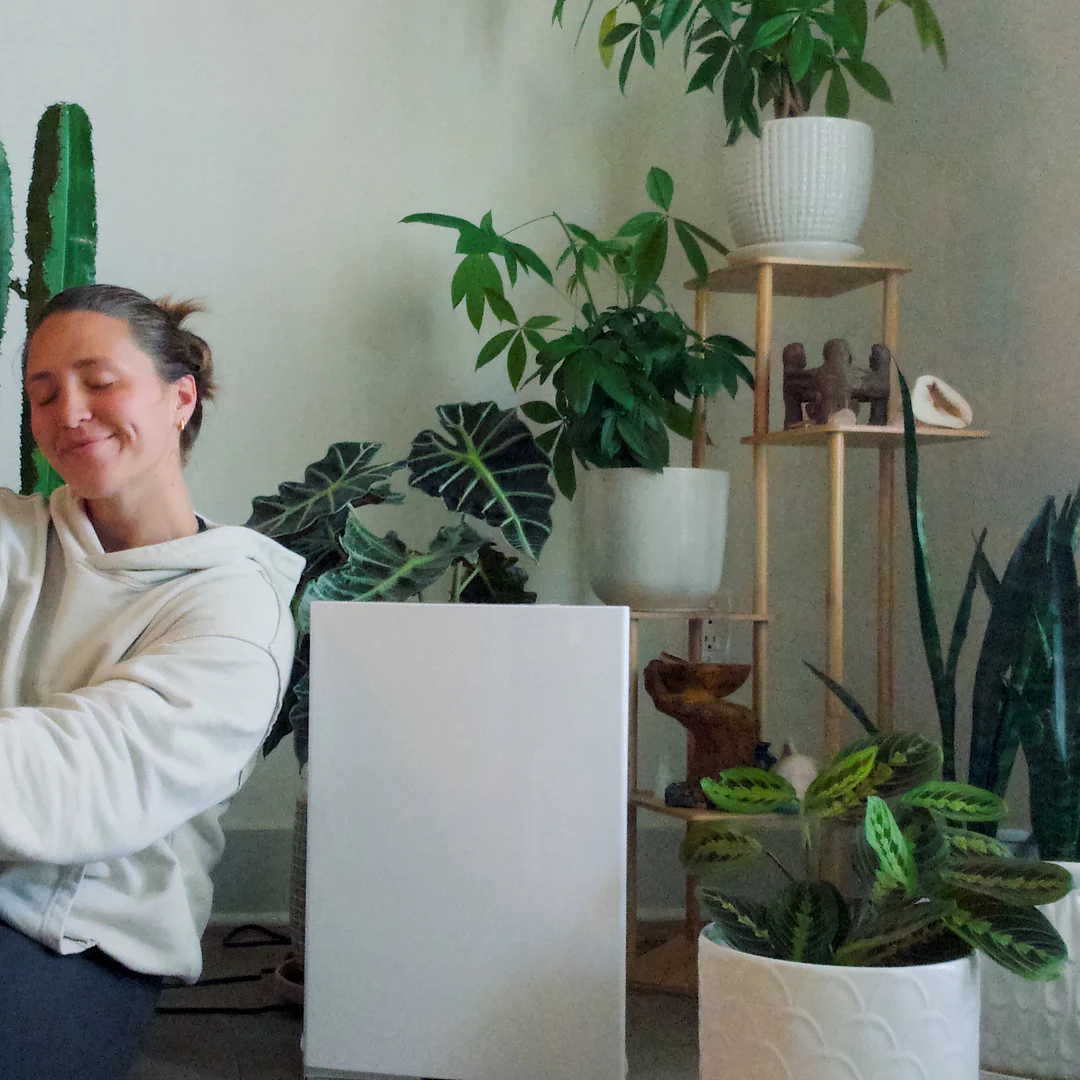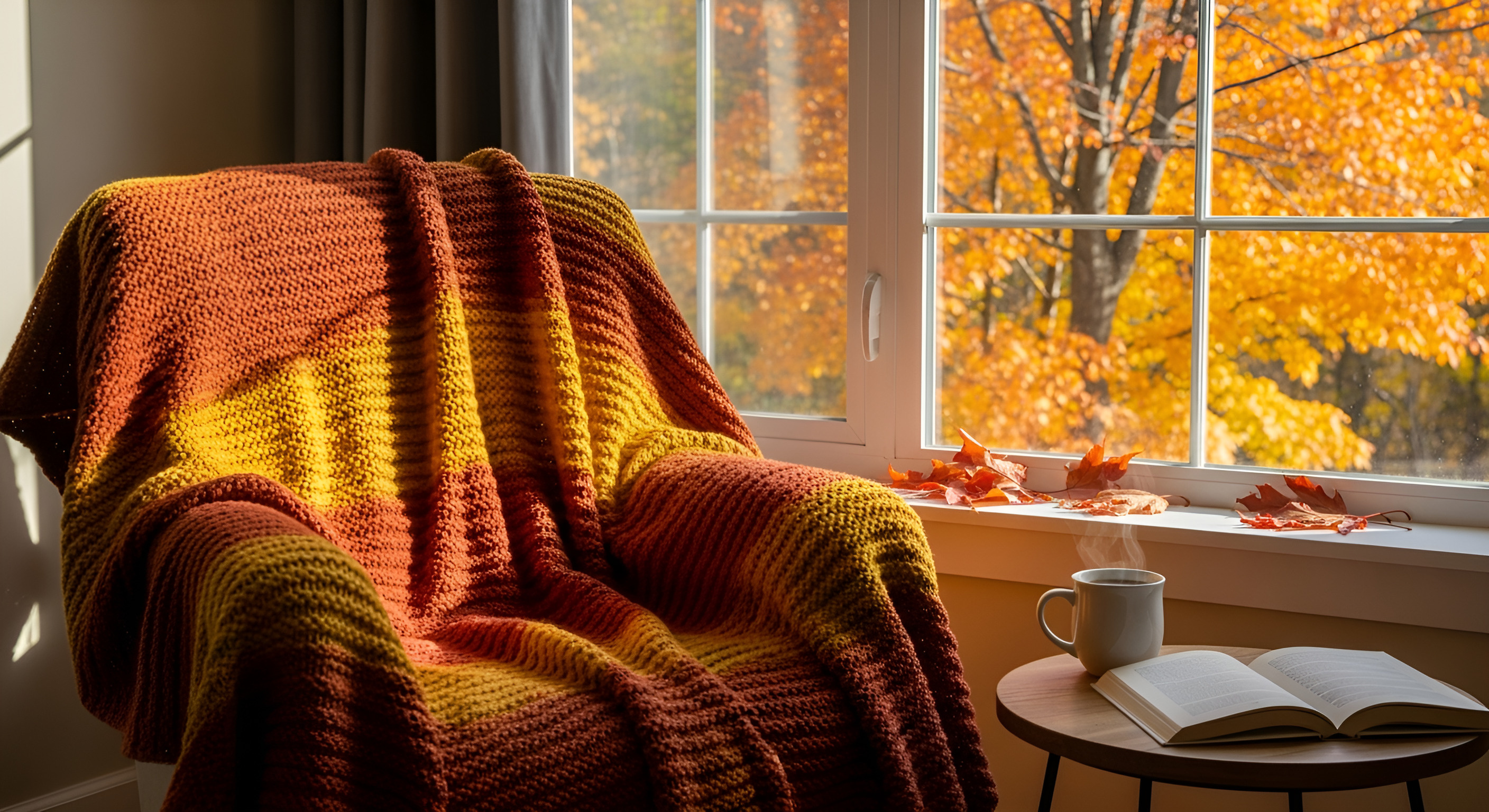
Summary
- Stale or musty odors come from moisture, poor ventilation, pets, trash, and everyday activities, and can soak into fabrics, carpets, and walls.
- Daily habits like proper bed-making, keeping clothes dry, vacuuming, and airing out rooms help maintain fresh indoor air.
- Natural odor-fighting methods include baking soda, vinegar, activated charcoal, citrus peels, essential oils, and DIY sprays or potpourri.
- Houseplants like snake plants, peace lilies, and herbs can naturally freshen rooms while also improving air quality.
- Air purifiers with HEPA and activated charcoal filters remove particles and odors, providing long-lasting freshness alongside proper ventilation and cleaning routines.
Have you ever walked into a room that just felt stuffy and stale? Maybe you opened the door to the guest room for the first time in months and it didn’t smell so welcoming. Having a fresh, clean smelling home doesn’t have to involve a witch’s brew of chemical products. Some air fresheners can even contain nasty chemicals and compounds that can actually cause health issues. It's easy to create a pleasant home atmosphere with truly long-lasting freshness. Here’s what you need to know about making your home smell fresh naturally and safely.
Why Your Room Stops Smelling Fresh
There are a number of reasons why a room can start to smell a bit off. In damp areas mold and mildew can take hold leaving a musty odor. Pets bring a whole host of smells from dogs rolling in the yard to the ubiquitous cat litterbox. Trash cans, dirty laundry baskets, and that mysterious funk that wafts from your teen’s bedroom all contribute to the bad smell mix. Add to it stale air or poorly ventilated spaces that let odors stew. Even worse these odors can soak into furniture fabric, carpet, curtains or even the walls themselves. Everyday activities like cooking, cleaning, or just walking through a room after hitting the gym can add new odors. Hidden sources like sink or bathroom drains may also be teeming with smelly bacteria. You can see how the odds of fighting bad smells may seem bad, but there is hope.
How to Make Your Bedroom Smell Fresh
Your bedroom is your sanctuary for rest, it should be refreshing to breathe too.
Daily Habits That Keep Bedrooms Smelling Clean
When you get up in the morning go ahead and make the bed properly. This helps the bed air out and lets any trapped moisture evaporate. Don’t let dirty laundry sit too long in the hamper. Speaking of the dirty clothes hamper, give it a good cleaning every few months to clear out any lingering smells.
Make sure your clothes are completely dry before storing them so mildew can’t grow. Leave your closet door open for ventilation. Speaking of ventilation, check your local outdoor air quality and open a few windows for natural deodorizing. Make sure to vacuum often and wipe down surfaces to get rid of odor causing particles. If you have pets you may want to limit their access to the bedroom to keep their odors down. Pet bedding should be washed once a month and dried completely before being put back into use.
Deep Cleaning Strategies for Persistent Bedroom Odors
Sometimes bedroom odors simply don’t want to leave. Start by using an upholstery attachment to vacuum your entire mattress. Make sure to get into all of the crevices and seams really well. Next sprinkle the mattress with baking soda and let it sit for at least an hour before vacuuming it up. For stubborn odors mix equal parts vinegar and distilled water in a spray bottle. Give the mattress a light misting and let it dry thoroughly before putting the sheets back on. For pillows read the care tag and wash accordingly or simply replace them.
Carpets and rugs can be easily deodorized in a few ways. Sprinkle a generous amount of baking soda evenly across the carpet or rug and let it sit for at least an hour. Vacuum the area thoroughly to remove the now odor laden baking soda. If after vacuuming smells persist you can try the same mixture of equal parts vinegar and distilled water as used on the mattress. Mist the carpet with the mixture and let it dry thoroughly. Make sure to test the vinegar/water spray in a hidden area first to make sure it does not harm the carpet/rug color.
If your closet is the odor source make sure it is getting plenty of ventilation. There’s a reason why many closets use louvered doors, it keeps the air in the closet from going stale. Make sure to only put fully dry clothes in the closet. Shoes may need an odor-absorbing insert. Use breathable storage bins or baskets that won’t trap moisture. Don’t cram clothes together, you want air to circulate around them. Make sure to vacuum the closet floor to remove any dust or lint that might be holding odors.
Wipe down walls and ceiling to remove any cobwebs or dust particles using a damp microfiber towel. Make sure to clean the ceiling fan if you have one. If the weather outside is nice, open the windows and air the room out. For upholstered furniture in the room, sprinkle it with a layer of baking soda, let it sit an hour and vacuum it up with an upholstery attachment. Wipe down any wood surfaces with a microfiber cloth to remove any dust.
Natural Ways to Deodorize Your Air
You don’t have to load up with store bought chemicals to have a fresh smelling room.
Simple Ingredients That Neutralize Odors
Baking soda is a simple and effective tool in the fight against odors. You can pour some in a shallow bowl and just leave it out to soak up odors. You can sprinkle it on the carpet or upholstery and vacuum it up to take odors with it. Sprinkle a little inside your shoes at night to take care of smells as you sleep. We already mentioned a mixture of equal parts vinegar and distilled water for odors, but it can also be used as a surface cleaner (but not on natural stone surfaces). Activated charcoal is also a great way to adsorb odors and lock them away. Or you can use dry coffee grounds in a cloth bag as a portable odor absorber. Finally a few lemon or citrus peelings placed strategically can give a fresh scent to a room.
DIY Methods to Keep Your Room Smelling Fresh
You can make your own air freshener with just a few things you probably already have at home. Grab an empty spray bottle and mix one cup of distilled water with two tablespoons of rubbing alcohol along with 10-20 drops of lavender or lemon essential oil. Give the spray bottle a good shake before each use and lightly mist the air whenever things get stale. For a classic potpourri place dried rose petals, driven orange peel, cinnamon sticks, cloves and rosemary in a decorative bowl. An old sock (with no holes) or a small fabric bag works great for homemade scent sachets. Put cedar chips, dried lavender or just baking soda inside and put anywhere that needs a pick-me-up. Got carpets? Mix one cup of baking soda with 20 drops of your favorite essential oil fragrance and sprinkle it on the carpet. Let it sit for an hour and vacuum thoroughly to neutralize odors while leaving a pleasant fragrance.
Best Essential Oils to Make a Room Smell Fresh
Essential oils are a simple way to add the right scent to a room. For those with pets consult with your veterinarian before using any essential oils around the home, as some can be toxic to certain animals.
Top Essential Oils for Different Moods and Spaces
These are the most popular essential oils and their benefits:
- Lavender - long used for stress relief and restful sleep.
- Eucalyptus - Invigorating scent that is also used for clearing congestion.
- Lemon and citrus - Energizing and mood-boosting scents that refresh.
- Peppermint - Freshens up any room while helping with mental focus.
- Tea tree - Sharp scent that is also a powerful disinfectant.
Safe Ways to Use Essential Oils in Your Room
Essential oils are powerful distilled versions of their plant sources and should be used with care. An ultrasonic water diffuser is a gentle way to add fragrance and a bit of humidity. Passive reed diffusers give off a continuous pleasant scent with no electricity needed. There are electric diffusors on the market that gently heat the oil, but they are best for large rooms or when a heavy scent is desired. The DIY room freshener mentioned earlier is also a great, easy way to introduce a scent. For true simplicity just place two or three drops of essential oil on a cotton ball in a small dish in an area with good air flow.
When it comes to diluting essential oils, start with a weaker scent and work your way up. You want a ratio of roughly 1% to 3% essential oil to water ratio. When using diffusers start with fewer drops at first and increase if you want a stronger smell. Avoid getting essential oil on your skin directly, making sure to wash with soap and water if there is contact. As mentioned earlier, consult with your veterinarian before using essential oils around your pets.
Best Plants to Keep in a Room for Fresh Scent
House plants are a great natural way to give your home’s air a fresh boost.
Air-Purifying Plants That Naturally Freshen Rooms
Not only are house plants a nice way to brighten a room, some of them are quite adept at freshening the air. Here are a few examples:
- Snake plants - This plant is great for busy or beginner plant owners thanks to its drought resistant nature and ability to thrive in even low light conditions. It actually releases oxygen at night, so it is great for bedrooms. It can also remove toxins such as benzene and formaldehyde.
- Spider plants - An easy to grow plant that can handle a wide range of temperatures and only need indirect light. It is a natural air filter absorbing carbon dioxide and other pollutants while releasing oxygen.
- Peace lilies - Not just a pretty white flower, this plant can actually help with humidity levels by releasing moisture into the air. Of course it also absorbs toxins while releasing oxygen. It does need a bit more tending to thrive.
- Rubber trees - Got a big space with lots of light that needs fresh air? Share your indoor space with a rubber tree! You get a big, leafy plant that is sure to draw compliments as it replenishes oxygen in the room.
These are just a few popular indoor plants, check with your local garden center for advice on what plants might do well in your area.
Fragrant Plants for Natural Room Scenting
Want to add a nice fragrance to your home naturally? Try a few indoor plants that not only look nice but smell nice! Herbs like mint, basil, rosemary and thyme give off a pleasing scent while also being handy for cooking. Flowering plants like lavender, jasmine gardenia and honeysuckle make great air freshener. Succulents are still popular with their otherworldly appearance with several known for their pleasant scents.
For best results place plants in multiple rooms instead of clustering them in a single space. Place plants near airflow sources so they can have plenty of air flowing around them. When possible, get plants up off the floor so they are in your breathing space. Leave plenty of space between plants for growth and to prevent air from stagnating. Make sure each plant is located where it can get the light it needs.
How to Make Your House Smell Good Naturally
Here are a few ways to improve your home’s scent without harsh chemicals.
Whole-House Strategies That Start in Your Room
Make sure doors between rooms are open so air flows freely between them preventing any stagnant areas. Consider using louvered doors when privacy is important but airflow is still needed (like closets). Try placing one of the previously mentioned pleasant scent sources in a central area where it can spread across the house. Make sure the HVAC system filter is changed regularly and that any intakes or returns are not blocked for maximum airflow. When cooking make sure to use the exhaust fan while also opening a nearby window slightly to allow cross-flow of air. You can place a charcoal filter equipped portable air purifier near the cooking area to help capture any wayward odors.
In spring and fall when temperatures are mild and outdoor air quality is good, open the windows whenever possible for some natural freshness. In summer keep indoor humidity under control to keep musty mold and mildew smells from taking hold. When winter comes around try warming scents like vanilla and pine to help make things cozy.
Room-by-Room Fresh Air Techniques
Earlier we covered how to keep your bedroom fresh, but what about other rooms of the house?
- Bathroom - Here it is all about managing humidity so mold and mildew can’t grow. Use the exhaust fan while bathing and let it run long enough to clear moist air. You can also use a simple essential oil reed diffuser to create a pleasant atmosphere.
- Kitchen - Always run the exhaust fan when cooking so smoke and food odors are quickly removed. Keep trash can areas clean so smells don’t linger. If you have an in-sink garbage disposal run a few ice cubes through it while running water to flush away any food debris.
- Living room - Vacuum carpets and rugs regularly. Use an upholstery attachment and give the furniture a good cleaning including all of the crevices where odors can linger. Apply baking soda as previously mentioned to soak up any lingering smells.
- Guest room - Wash all linens and dry thoroughly before guests arrive. Open the doors and windows if the weather is nice and air out the room for a few hours. Wipe down surfaces to remove any odor source particles.
- Basement - Here ventilation is key as it is typically not part of the HVAC airflow pattern. Install fans or vents to get air moving. Use a dehumidifier and repair any water leaks to keep moisture under control.
Tips for Keeping a Room Smelling Fresh All Day
Your home can feel fresh all day long with just a few simple steps.
Morning Routines That Set the Stage
Cooler morning temperatures during spring and fall are great for opening the windows for a few minutes in the morning to bring in fresh air. When you get out of bed in the morning pull back the sheets and blankets to allow residual body heat and moisture to escape while you get ready. After 30 minutes remake the bed so you are ready to tuck in that night. Make sure to empty kitchen and bathroom trash daily so odors can’t build up. Tidy up areas like closets and under furniture where dust and clutter can trap odors. Wipe down surfaces as you move through the house so odor causing particles can’t linger.
Evening Maintenance for Overnight Freshness
Before bed, turn on a fan or crack a window to get air circulating in the room. Keep the bedroom door open slightly to allow air to move freely. Place an air purifier near the head of the bed so it can supply clean air for easier breathing. Remove dirty laundry from the room so smells can’t soak in during the night. Place a shallow bowl filled with baking soda, coffee grounds or activated charcoal near the bed to capture lingering odors. Keep bedroom humidity between 40% and 60% (you may need a humidifier or dehumidifier) so you can breathe comfortably but not invite mold growth.
How Air Purifiers Help Make Rooms Smell Better
The right air purifier can not only remove harmful particles, but bad smells as well.

Technology That Removes Odor Sources
Bad smells can be carried by tiny particles as well as volatile organic compounds (VOCs) and chemicals. An air purifier with a HEPA filter can capture 99.97% of airborne particles 0.3 microns in size, including those that carry odors. But for really stopping bad smells you need an air purifier with an activated charcoal filter. Activated charcoal works to adsorb chemicals and remove them from the air. The odors aren’t just covered up, they are removed from the environment and locked in the filter. The best place for an air purifier is in the center of the room where it can clean air without restrictions. If an odor source is identified (like a cat litter box) placing an activated charcoal equipped air purifier nearby can help stop odors before they spread.
Natural Ventilation vs Mechanical Air Cleaning
When outdoor air quality and humidity levels are favorable, opening a few windows for natural ventilation is a great way to freshen things up. You can even run your HVAC fan to help circulate outside air throughout the house. But outside air quality and weather don’t always cooperate, so mechanical air cleaning is the next best option. Running an air purifier means you don’t lose the heated or cooled air your HVAC system has already conditioned to your comfort preference. But keep an eye on outdoor air conditions so you can take advantage of naturally free fresh air.
Breathing Fresh Air in Your Personal Space
When it comes to freshening up your home, it's amazing what you can do with just a few household ingredients, a spray bottle and a vacuum. There's no reason to sit in a stuffy, smelly space when it's so easy to clear the air. Once you start on a fresh air routine, keeping it going becomes just part of your daily life. That's the way to truly long-lasting freshness. Try a few of our DIY ideas along with an Intellipure air purifier for around-the-clock clean air. Your nose and your health will thank you!


 Musty Smells — Getting Rid of Them From Home and Clothes
Musty Smells — Getting Rid of Them From Home and Clothes

_(1).jpeg)


